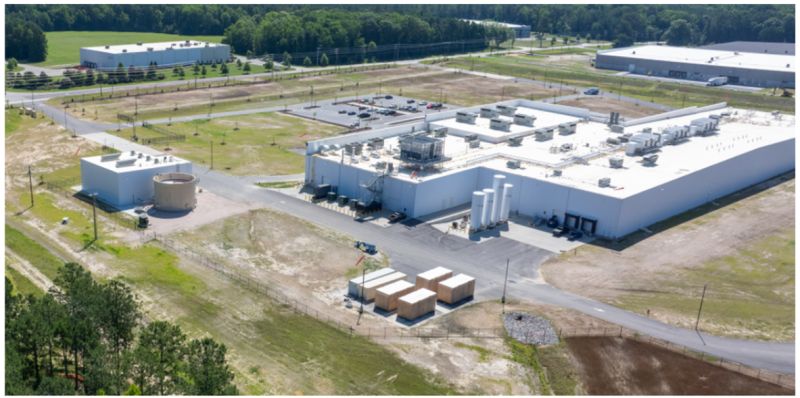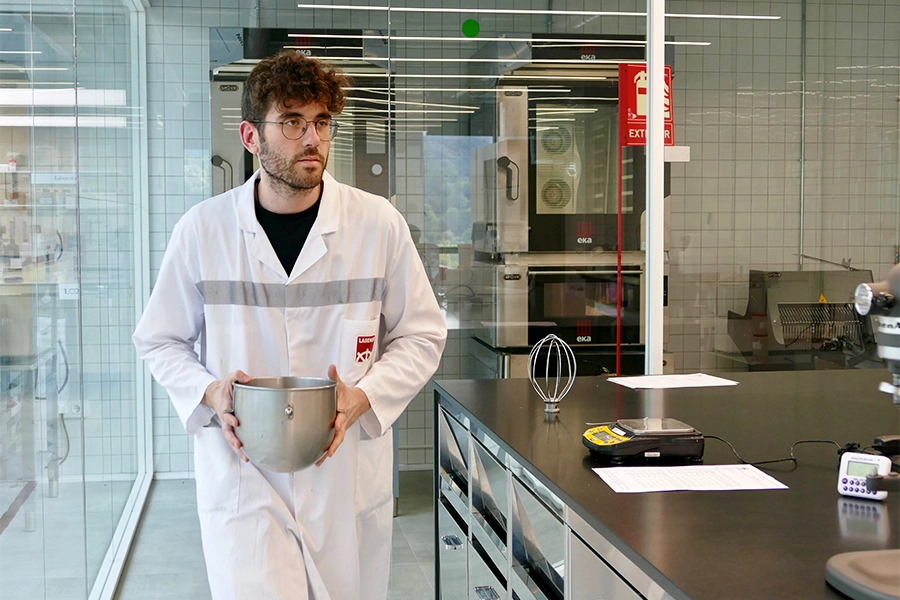
.jpg)
PoLoPo targets snack aisles with protein-boosted potatoes for chips market
Tel Aviv-based startup, PoLoPo, is repositioning its bioengineered potato technology to take aim at a new target: the chips aisle. The deep-tech company has announced a strategic shift to focus on high-protein potatoes for the snack food industry, positioning its novel tubers as a clean-label, drop-in solution for chip manufacturers seeking to meet surging consumer demand for more nutritious options.
PoLoPo’s proprietary platform can produce potatoes with up to three times the protein of conventional varieties. Crucially, the protein is grown inside the potato itself, eliminating the need for added powders, protein blends, or unfamiliar ingredients. That approach offers a notable edge in a category often associated with long ingredient lists and highly processed offerings.
“This is not another highly processed protein snack with a long ingredients list,” commented Maya Sapir-Mir, PoLoPo’s CEO. “We make the best potatoes in the world, allowing snack makers a faster, cleaner way to meet rising demand for high-protein products.”
While the startup made headlines last year for its work in molecular farming, including efforts to produce animal-identical proteins in potato plants, this shift reflects a strategic realignment rather than a retreat.
.jpg)
“The shift came from opportunity, not compromise,” Sapir-Mir continued. “While our original focus was on molecular farming, we realized we could leverage the same platform to increase native potato protein and commercialize the potato itself more quickly. The market need for high-protein, clean-label snacks is growing fast, and our potatoes directly address that.”
By focusing on native protein expression in a staple crop, PoLoPo can bring its technology to market faster. The company expects to receive USDA clearance for its high-protein varieties in the near future, with no FDA approval required as the potatoes are consumed in whole form.
“With field trials completed, we generated strong technical data to support our USDA submission,” Sapir-Mir confirmed. “We expect to achieve regulatory clearance by the end of 2025.”
According to PoLoPo, the protein boost is achieved by enhancing the potato’s natural ability to synthesize and store protein. The added protein is stored within existing compartments of the tuber, preserving the potato’s taste, texture, and yield.
“We’ve run successful pilots to confirm there’s no trade-off in taste or yield,” said Sapir-Mir. “The result: same potato, better nutritional value.”
The platform is also designed for flexibility, with the ability to be integrated into virtually any potato cultivar. That gives food brands freedom to maintain their identity and existing supply chains while using PoLoPo technology behind the scenes.
“We can implement it in virtually any potato variety, including those used for chips, fries, or mashed applications,” Sapir-Mir said. “This gives brands flexibility to keep their identity while using PoLoPo technology in the background.”
.jpg)
PoLoPo is currently running a pilot program with chip manufacturers and snack brands, and is actively seeking more partners to help bring the first generation of high-protein chips to market. The company emphasized that its potatoes require no new equipment, no new processing lines, and no reformulation – making it an easy upgrade for existing production systems.
“We’re working closely with chip and snack manufacturers to integrate our potatoes into their current production,” said Sapir-Mir. “The ideal partner is a brand looking to differentiate through strong innovation and nutrition.”
That ease of integration is key to the company’s bet on snacks as the fastest path to scale. The chips segment combines high consumer engagement with relatively low regulatory friction – a combination PoLoPo believes can help validate its technology for future applications.
“Chips give us speed, scale, and visibility,” said Sapir-Mir. “Success here proves our tech works in real-world supply chains, validates our regulatory strategy, and positions us as an enabling platform.”
If successful, the move could also pave the way for other potato-based product lines, or even cross over into functional ingredients. Sapir-Mir sees the chips push as a bridge to the company’s original vision of molecular farming.
“This move doesn’t replace our long-term vision for molecular farming. It complements it,” she said. “The shift allows us to scale up and build a bridge to broader uses like protein powders in the future.”

Consumer expectations around transparency and clean-label foods are also shaping the way PoLoPo communicates its value proposition. While the potatoes are bioengineered, the company emphasizes that the protein is grown naturally within the plant, without external additives or post-harvest manipulation.
“Our potatoes grow the protein inside the plant and nothing is added or extracted,” said Sapir-Mir. “That means fewer ingredients, no formulation tricks, and clean labels. We see this as an evolution of food: achieving better nutrition through the crop itself.”
For consumers wary of genetically modified foods, Sapir-Mir points out that bioengineered ingredients are already widely used in many snacks and staples – but PoLoPo’s approach offers a meaningful difference.
“What makes our approach different is that it improves the crop itself, rather than adding something artificial,” she said. “We work with brands to communicate clearly, emphasizing transparency, nutrition, and simplicity.”
With pilot production underway and regulatory clearance on the horizon, PoLoPo believes its potatoes could give snack makers a rare combination: higher nutrition without compromising taste, texture, or simplicity. And in a market hungry for protein-packed but minimally processed foods, the company is betting that its quietly engineered tubers will be the next big crunch.
If you have any questions or would like to get in touch with us, please email info@futureofproteinproduction.com






